Myth 1Cats Can Thrive on a Vegetarian Diet
Fact: Cats are obligate carnivores, needing animal products for essential nutrients like taurine.
Ready to be the best kitten parent ever? Get expert tips, product reviews, and essential guides delivered straight to your inbox!
Posted on: 2025-10-30
By: Edyta Drabek
Many first-time cat parents struggle with conflicting information about kitten nutrition. To help you embark on this journey with your new furry friend, we’ve uncovered the essential truths and myths surrounding their dietary needs.
Understanding common misconceptions about kitten nutrition is crucial for first-time cat owners. The visual below highlights key myths and provides factual insights to help you make informed dietary choices for your furry friend.
Fact: Cats are obligate carnivores, needing animal products for essential nutrients like taurine.
Fact: Wet food offers crucial hydration; a mix often provides the best balance.
Fact: Most kittens digest grains well; focus on overall quality, not just grain-free.
Fact: Kittens require higher protein & calcium for growth, different from adult cats.
Fact: Quality varies; check ingredients for high protein and essential nutrients.
Fact: Most kittens are lactose intolerant; dairy can cause gastrointestinal upset.
Fact: Supplements support, but cannot replace, a well-rounded diet from whole foods.
As a first-time cat parent, you may find yourself overwhelmed with conflicting information about kitten nutrition. It’s crucial to seek reliable advice to ensure your furry friend gets the best start in life. Misinformation can lead to health issues down the line, which is why I’m here to clear up some common myths and provide you with the facts you need!
At Kittie Care Central, we are dedicated to empowering you with knowledge that promotes your kitten's well-being. Having navigated the ups and downs of kitten parenting myself, I’ve seen firsthand how important it is to understand what our little ones need to thrive.
Reliable nutrition advice helps set the foundation for your kitten’s health. Without it, you might unknowingly make choices that could adversely affect their growth and development. For instance, feeding incorrect food types can lead to deficiencies in essential nutrients and other significant health issues, as explored in this resource on kitten nutritional myths.
By understanding the nutritional needs of your kitten, you can make informed decisions that contribute to their happy and healthy life. This journey is all about fostering a bond with your new feline friend while ensuring they get the best care possible!
Now, let’s dive into some of the most common myths surrounding kitten nutrition. It’s essential to separate facts from fiction when it comes to what your kitten eats. Misunderstandings in this area can lead to poor dietary choices and even health concerns, as highlighted by various veterinary experts.
It’s a common misconception that cats can be healthy on a vegetarian diet. Since cats are obligate carnivores, they require specific nutrients found only in animal products. Essential nutrients, like taurine and certain amino acids, are vital for their health, as further detailed in this article debunking cat nutrition myths!
Feeding a vegetarian diet to your kitten can lead to significant health issues. It’s best to stick to a balanced diet rich in high-quality animal proteins.
Many people believe that dry food is the best choice for kittens, but this isn’t necessarily true. While dry food can be convenient, it’s essential to consider the benefits of wet food as well. Hydration is key for your kitten’s health, and wet food can aid in keeping them properly hydrated.
Ultimately, a combination of both dry and wet food may provide the best nutritional balance for your kitten!
Another prevalent myth is that grain-free diets are inherently healthier for kittens. While some cats may have grain sensitivities, most kittens can digest grains quite well. In fact, grains can provide beneficial carbohydrates and fiber!
Always look for high-quality ingredients in your kitten's food, rather than focusing solely on whether or not it contains grains.
It’s a misconception that kittens can eat the same food as adult cats. Kittens have unique nutritional needs that differ from adult cats, requiring higher levels of certain nutrients, such as calcium and protein, to support their growth. Without these, you could hinder their development!
Choosing a food specifically formulated for kittens is vital for their overall health and future well-being!
Not all cat food brands offer the same quality and nutritional value. It’s essential to evaluate the ingredients and nutritional content carefully. Some brands may skimp on quality, using fillers rather than wholesome ingredients, an important aspect discussed in current research on cat nutrition.
Doing your homework can ensure that you’re providing your kitten with the best possible nutrition!
Many believe that kittens can drink milk like adult cats, but this is another common myth! Most kittens are lactose intolerant, meaning their bodies struggle to digest lactose, which can lead to gastrointestinal upset.
It’s best to avoid giving dairy products to your kitten altogether!
Finally, some pet owners think that supplements can make up for a poor diet. While supplements can support certain health needs, they should not replace a well-rounded, balanced diet. A proper diet provides a combination of all the nutrients your kitten needs for optimal health!
Consulting with your veterinarian can help you determine if your kitten requires supplements and how to incorporate them into their diet.
To give your kitten a great start, it’s crucial to understand the vital nutrients they need. Key components like high-quality protein sources, essential fatty acids, taurine, and calcium play significant roles in their development.
By ensuring your kitten receives these essential nutrients, you’ll set them up for a lifetime of health!
Feeding frequency and portion control are critical for healthy kitten growth. It's important to establish a routine that aligns with their needs. Kittens typically require several small meals throughout the day to support their energy levels and growth.
Portion control helps prevent overfeeding and supports a healthy weight. Regularly monitor your kitten’s weight and adjust portions accordingly!
Understanding pet food labels is essential when selecting the right food for your kitten. Labels provide important information about the ingredients and nutritional content of the food.
By learning how to read these labels, you can make informed decisions that contribute to your kitten’s health and happiness!
Here are some common questions first-time cat parents often ask about kitten nutrition:
No, kittens are obligate carnivores and require specific nutrients found only in animal products, such as taurine and certain amino acids, for their health. A vegetarian diet can lead to significant health issues.
While dry food is convenient and can help with dental hygiene, wet food provides crucial hydration. A combination of both dry and wet food often offers the best nutritional balance for kittens.
Not necessarily. Most kittens can digest grains well, and grains can provide beneficial carbohydrates and fiber. The focus should be on the overall quality of ingredients rather than solely on whether the food is grain-free.
Kittens have unique nutritional needs, requiring higher levels of protein and calcium for proper growth and development compared to adult cats. It is vital to choose food specifically formulated for kittens.
Most kittens are lactose intolerant, and feeding them dairy products can cause gastrointestinal upset like diarrhea and stomach discomfort. It's best to avoid giving dairy to kittens.
No, supplements should support, not replace, a well-rounded and balanced diet. A proper diet from whole foods provides all the necessary nutrients for optimal health. Consult your veterinarian before adding supplements.
Young kittens (up to 4 months) typically need 4 meals per day. Older kittens (4-6 months) can be fed 3 meals per day, while adult cats usually eat twice a day. Portion control is also important to prevent overfeeding.
Did you know? When transitioning your kitten to a new diet, it's best to do it gradually over a week. Start by mixing a small amount of the new food with their current food, gradually increasing the new food while decreasing the old. This process helps prevent digestive upset and ensures your kitten adjusts comfortably to their new nutrition!
As we wrap up our discussion on kitten nutrition, it's essential to reflect on the major myths we've debunked and their implications for you as a first-time cat owner. Understanding these common misconceptions can help you make informed decisions that will benefit your kitten's health and well-being.
Here are the critical points to remember:
By keeping these points in mind, you'll be better equipped to provide the best nutrition for your furry friend. Remember, a well-nourished kitten is a happy and healthy one!
At Kittie Care Central, we believe that knowledge is power when it comes to responsible pet ownership! Staying informed about kitten nutrition is vital for ensuring your feline companion enjoys a long and healthy life.
When you equip yourself with reliable information, you're making a positive impact on your kitten's future. Here are some reasons why ongoing education is essential:
Remember, the journey of being a cat parent is ongoing—stay curious and informed!
Learning about kitten nutrition doesn't have to be boring! Engaging with interactive and visual resources can enhance your understanding and keep you motivated. Here are some ideas to get you started:
By utilizing these resources, you'll not only learn more but also connect with a community of fellow kitten lovers who share your passion for responsible pet ownership!
As a new kitten parent, you might be asking yourself, "What should I do next?" Well, it's time to take action! Here’s how you can continue this journey:
Embrace your role as a kitten parent with enthusiasm and commitment—your little furry friend is depending on you for a happy and healthy life!
Here is a quick recap of the important points discussed in the article:
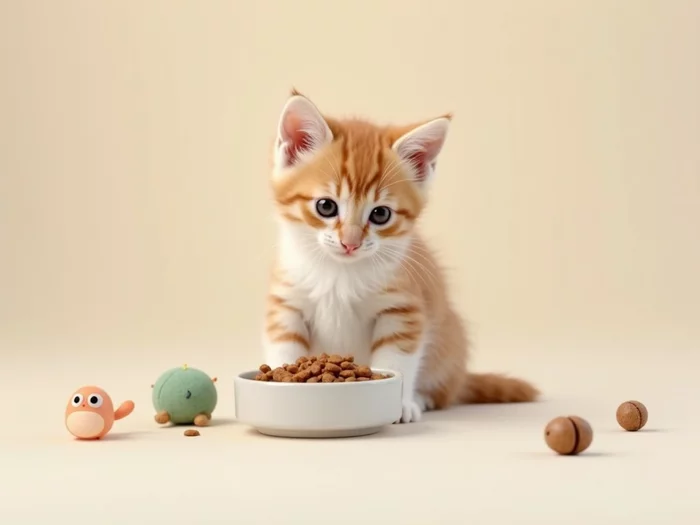
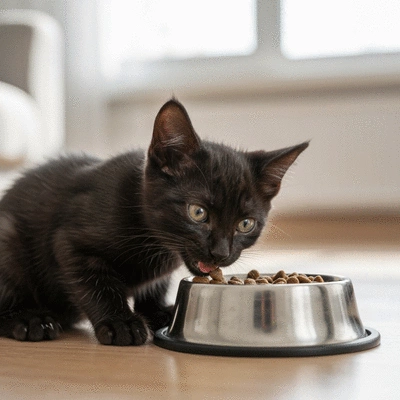
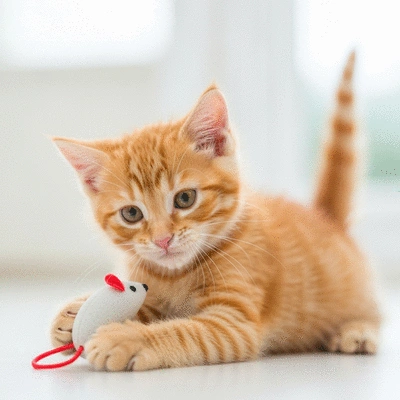
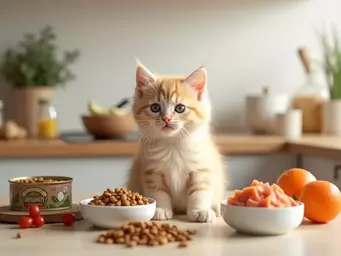 As you embark on the journey of kitten parenting, understanding your little furball's nutritional ne
As you embark on the journey of kitten parenting, understanding your little furball's nutritional ne
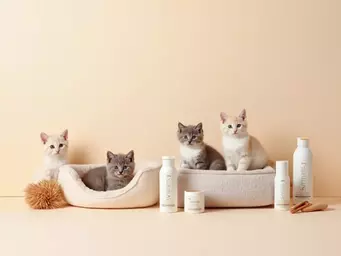 As you embark on the rewarding journey of kitten parenthood, understanding the significance of choos
As you embark on the rewarding journey of kitten parenthood, understanding the significance of choos
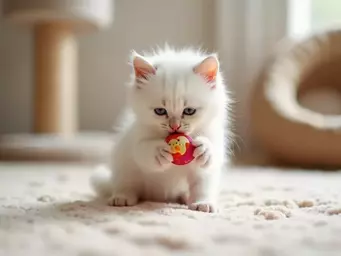 Early training is not just a phase; it's a cornerstone of a kitten's lifelong behavior and well-bein
Early training is not just a phase; it's a cornerstone of a kitten's lifelong behavior and well-bein